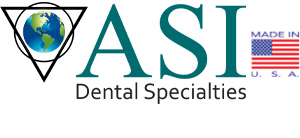Assessing the Impact of “Should” vs. “Shall” on Your Practice
The difference between “Should” and “Shall” in Regulatory Speak can make a big difference in how you go about interpreting the many new guidelines coming out regarding infection control.
The rush of new recommendations coming out has been not only confusing with a lack of clarity but also sometimes contradictory. To add to the confusion, an often misunderstood but very important criteria when reading regulatory guidelines is to understand the implication of the wording being used. Words like “Shall” or “Must” will mean you are required to do what the regulation is stating if the agency has enforceable authority over your practice. However, words like “Should,” “Consider,” or “Recommendations” mean they are only suggesting you follow these guidelines, but there is no requirement or mandate that you must do so. For example, one protocol recommendation is to have patients wait in their vehicles and have staff accompany them inside. This is not a mandate in any of the regulations we have seen. Most patients and staff find this particular protocol disruptive and find other ways to achieve the same objective. An important note is that the ADA, CDC, and OSHA have recently put forth science-based recommendations that are guidance documents and not requirements. Therefore, dental offices should also be evaluating their state/local regulations because those are requirements that must be followed.
We have heard from a few customers that have expressed there doesn’t appear to be a clear authority or a step-by-step guide on exactly what must be done to be compliant. The short answer is that you are the De Facto Authority for your practice in a time of operation that lacks clarity in oversight or mandated protocols. The term De Facto has various meanings in how it is applied, but generally, when there is a lack of clear governmental directive or oversight, then the adopted standard practice becomes the De Facto way of doing it.
Being up to date on the various guidelines put forth by agencies and associations combined with your own experience and knowledge will allow you to ultimately choose required protocols and recommendations that are right for you and your practice. What protocols you implement to protect you, your staff, and your patients will become part of a universal way of practicing that eventually becomes adopted by the majority of dentists. Showing some discernment to implementing extraordinary measures could be prudent as they may be deemed unnecessary in the future as things return to normal. Using tried and proven protocols that have kept patients safe in the past can and should be an ideal starting point.
Copyright 2020 All Rights Reserved. ASI Medical, Inc. DBA ASI Dental Specialties



